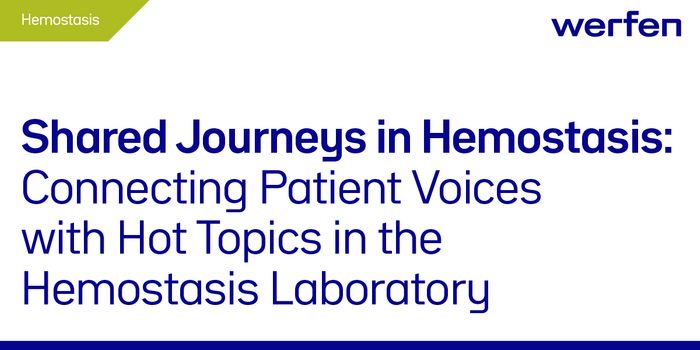Edmond and Lily Safra Research Fellow, King's College
Speakers Share
-
Martin Broadstock, PhD
-
Caitlin Buckspan, PhD
Postdoc, University of Florida
BIOGRAPHY
-
Gonçalo Castelo-Branco, PhD
Senior Research Fellow (Associate Professor) at the Department of Medical Biochemistry and Biophysics at Karolinska Institutet & Dr Amit Zeisel, Postdoc, Department of Medical Biochemistry
BIOGRAPHY
-
Brendan Collins, MS
Field Scientific Specialist (East), Multiplex Assays, Abcam Inc.
BIOGRAPHY
-
John Constable, PhD
Postdoc, University of Oregon
BIOGRAPHY
-
Jeremy Day, PhD
Assistant Professor in the Department of Neurobiology at the University of Alabama
BIOGRAPHY
-
Jackie Douglass
MD-PhD candidate, Johns Hopkins School of Medicine
BIOGRAPHY
-
Miriam Ferrer, PhD
Product Manager, Assays at Abcam
BIOGRAPHY
-
Elizabeth Glennon, PhD
Alzheimer's Research UK fellow, Institute of Psychiatry, Psychology and Neuroscience at King's College London
BIOGRAPHY
-
David Grotsky
SciSup, Abcam
BIOGRAPHY
-
Kate Hayes
Abcam Scientific Support Supervisor, Abcam
-
Joo-Hyeon Lee, PhD
Principal Investigator, University of Cambridge
BIOGRAPHY
-
Jeremy Kasanov, PhD
-
Carolyn Miazga, PhD
Research Assistant, Tufts University
BIOGRAPHY
-
Cristina Munoz-Pinedo
Researcher, Bellvitge Biomedical Research Institute (IDIBELL)
BIOGRAPHY
-
Russell Neuner, PhD
Research & Development Manager, Bio-Rad Laboratories
BIOGRAPHY
-
Andrew Oberst, PhD
Assistant Professor, University of Washington's Department of Immunology
BIOGRAPHY
-
Daniel Pregibon, PhD
General Manager - Platform Innovation, Abcam Inc.
BIOGRAPHY
-
George Prendergast, PhD
Professor, President and CEO, Lankenau Institute for Medical Research, Editor-in-Chief, Cancer Research, AACR
BIOGRAPHY
-
Simon Renshaw
Abcam Senior Imaging Scientist, Abcam
-
Thomas Ruyle
Scientific Support, Abcam
BIOGRAPHY
-
Ina Schulte, PhD
Cancer Research, Genetics, Immunology, University of Cambridge
BIOGRAPHY
-
Alejandra Solache
Head of Reagents Product Development and Manufacturing, Abcam
BIOGRAPHY
-
Jean-Paul Thiery, PhD
Research Director Emeritus at the Institut Gustave Roussy Comprehensive Cancer Center at Villejuif, and at the CNRS unit Matter and Complex Systems, Visiting Professor, School of Medicine o
BIOGRAPHY
-
Javier Conde Vancells, PhD
Postdoc, University of Texas at Austin
BIOGRAPHY
-
Philipp Voigt, PhD
Wellcome Trust Sir Henry Dale career development Fellow, Wellcome Trust Centre for Cell Biology at the University of Edinburgh
BIOGRAPHY
-
Ann Wheeler, PhD
Core Imaging Facility at Blizard, Institute of Cell and Molecular Sciences, Queen Mary University
BIOGRAPHY
-
Amit Zeisel, PhD
Postdoc, Department of Medical Biochemistry and Biophysics at the Karolinska Institutet and the lab of Sten Linnarsson
BIOGRAPHY
Abcam virtual exhibition: support and products to advance your research
Get the support you need for your research.
_b7f0b3cc39d3c5d77f35651e3b2ee67e.jpg)
Our virtual exhibition at a glance
- Epigenetics
- Neuroscience
- Cancer
- Antibody validation
- Cell imaging
- Recombinant RabMab® antibodies
- Custom services
- Quantitative immunoassays and multiplex assays
- Immunology and flow cytometry
About Abcam
Webinars Share
-
-
-
OCT 12, 2017 12:00 PM PDT
Detection of circulating tumour biomarkers using the FirePlex® Technology Platform
-
MAY 02, 2017 8:00 AM PDT
Counteracting tumor evasion of antibody immunity, free webinar and Q&A session
Zhiqiang An, Ph.D.
-
FEB 02, 2017 5:00 AM PST
Targeting axonal transport in Alzheimer's disease
Elizabeth Glennon, PhD
Alzheimer's Research UK fellow, Institute of Psychiatry, Psychology and Neuroscience at King's College LondonBIOGRAPHY -
FEB 01, 2017 5:00 AM PST
Epithelial Mesenchymal Transition (EMT) in carcinoma
Jean-Paul Thiery, PhD
Research Director Emeritus at the Institut Gustave Roussy Comprehensive Cancer Center at Villejuif, and at the CNRS unit Matter and Complex Systems, Visiting Professor, School of Medicine oBIOGRAPHY -
JAN 26, 2017 5:00 AM PST
Control-Alter-Delete: Epigenetic regulation by non-coding RNAs in neuronal systems
Jeremy Day, PhD
Assistant Professor in the Department of Neurobiology at the University of AlabamaBIOGRAPHY -
-
-
-
JAN 17, 2017 8:00 AM PST
An Introduction to Flow Cytometry with Troubleshooting Tips
-
-
JAN 17, 2017 8:00 AM PST
An Introduction to Immunohistochemistry Principles with Troubleshooting Tips
-
-
-
-
JAN 17, 2017 8:00 AM PST
Apoptosis or necrosis: what type of cell death am I looking at? (Part 3 of 3)
-
JAN 17, 2017 8:00 AM PST
Are your cells alive, dead, or just resting? Tips to assess viability and cytotoxicity (Part 1 of 3)
-
-
JAN 17, 2017 8:00 AM PST
Fluorescent Western Blotting
-
JAN 17, 2017 8:00 AM PST
Going Out with a Bang: Understanding the Pathways of Necroptotic Cell Death
Andrew Oberst, PhD
Assistant Professor, University of Washington's Department of ImmunologyBIOGRAPHY -
-
JAN 17, 2017 8:00 AM PST
Immunochemotherapy: The Future of Cancer Treatment
George Prendergast, PhD
Professor, President and CEO, Lankenau Institute for Medical Research, Editor-in-Chief, Cancer Research, AACRBIOGRAPHY -
JAN 17, 2017 8:00 AM PST
Metabolic Regulation of Cell Death
-
JAN 17, 2017 8:00 AM PST
Principles and Practice of Confocal Microscopy in Life Sciences
Ann Wheeler, PhD
Core Imaging Facility at Blizard, Institute of Cell and Molecular Sciences, Queen Mary UniversityBIOGRAPHY -
JAN 17, 2017 8:00 AM PST
Principles of Immunohistochemistry
Brendan Collins, MSField Scientific Specialist (East), Multiplex Assays, A...Thomas RuyleScientific Support, Abcam -
JAN 17, 2017 8:00 AM PST
Regulation of Bivalent Domains by Histone Modifications
Philipp Voigt, PhD
Wellcome Trust Sir Henry Dale career development Fellow, Wellcome Trust Centre for Cell Biology at the University of EdinburghBIOGRAPHY -
JAN 17, 2017 8:00 AM PST
Single-Cell RNA-Seq and cell heterogeneity in the central nervous system
Gonçalo Castelo-Branco, PhDSenior Research Fellow (Associate Professor) at the Dep...Amit Zeisel, PhDPostdoc, Department of Medical Biochemistry and Biophy... -
-
DEC 15, 2016 7:00 AM PST
Characterization and affinity maturation of TCRmimic scFvs identified using phage display
-
JUN 29, 2016 7:00 AM PDT
Raising antibody validation standards with knockout technology

































































































